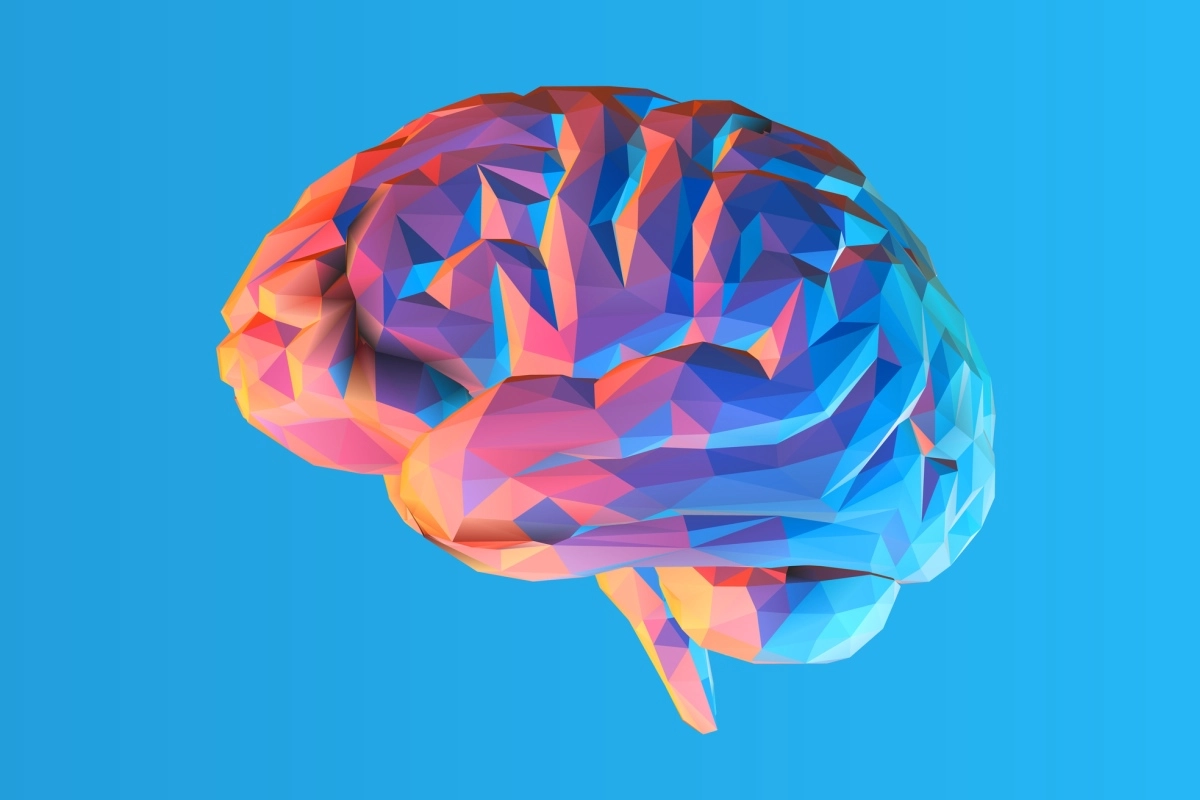Memories and perceptions are two very different things, but have you ever wondered how your brain is able to distinguish between them? In this blog post, we will delve into the fascinating world of memory and perception, and how your brain is able to tell the difference between the two. We will explore the factors that affect memory and perception, discuss the different types of memories and perceptions, and provide some strategies to improve your cognitive distinction. So, if you want to learn more about how your brain distinguishes memories from perceptions, read on!
Factors Affecting Memory And Perception
Memory and perception are two of the most important aspects of our lives. They help us to navigate our world and make decisions. However, memory and perception are influenced by a variety of factors, which can affect how they are stored in the brain. In this section, we will discuss the different ways that neural pathways influence memory and perception. We will also look at the physiology of memory and perception, as well as how various parts of the brain process memories and perceptions. Finally, we will explore how external cues can affect memories and perceptions, as well as how stress affects memory formation in different individuals. By understanding these factors, you can better understand how memories and perceptions impact your life both now and in the future.
Everyone remembers things differently due to differences in neural pathways. This is why one person might remember a piece of information very clearly while another person might only remember a small snippet. The way that memories are stored is also affected by various physiologic factors, such as age, sex, race, etc. Furthermore, sensory information plays a significant role in guiding memories and perceptions. For example, if you have smelled something before you remember what it was – that smell will be more likely to come up when you encounter that scent again later on.
Memory is also influenced by external cues or stimuli. For example, if you were studying for an exam but were distracted by someone calling your name outside the window – your study session would be hampered because part of your brain was processing another stimuli instead of focusing on studying for your test.. Perception is also impacted by internal factors such as emotions or feelings. For instance, if you’re feeling angry when looking at a picture, that emotion will likely be reflected in what you perceive – for example, seeing red dots instead of shapes. Lastly, lifestyle factors such as sleep deprivation or diet can also have an impact on both short-term ( moment-to-moment ) memory recall AND long-term (over time) recollection ability . Understanding all these different ways that information affects our memories allows us to make better choices when it comes to storing information or recalling past experiences.
Types Of Memories And Perceptions
Most of us take for granted the fact that memories and perceptions are two very different things. We remember things – events, people, places – while perceptions are just impressions that our brains create in order to make sense of the world. Every time we recall a memory, our brain goes through the same process as when we first perceived it. This means that memories can last a lifetime while perceptions tend to be fleeting.
There are three main types of memories: factual, emotional, and mental images. Factual memories are the most basic type, and they consist of information we’ve learned from experience or read about in books or articles. For example, if you remember going to your grandmother’s house as a child, that would be a factual memory. Emotional memories are similar to factual memories in that they’re based on information you’ve learned or experienced, but they also involve feelings such as happiness, sadness, or anger. For example, if you remember feeling really sad after your dog died last year, that would be an emotional memory based on factual information (your dog died). Mental images are simply recollections of sights and sounds without any accompanying emotions. For example, if you think of your childhood home fondly every time you visit it now even though you haven’t been there in years, that would be a mental image memory.
The differences between memories and perceptions aren’t just limited to the types of information involved; they also affect how long those memories will last. Simply put: recall is better than recollection! That’s because when we remember something correctly – whether it’s a fact or an emotion – our brain responds by activating all the relevant neurons associated with that memory instead of relying on generic neuronal pathways like it does when we merely recollection something. As a result, factual and emotional memories tend to last longer than mental images because they’re processed more thoroughly by our brains.
But how does your brain decide which memory is being recalled? The answer is actually quite complex and has come down to several scientific theories over the years. One theory suggests that when we remember something consciously – like recalling what we ate for lunch yesterday – our brain relies mainly on recent experiences stored in short-term working memory (STWM). On the other hand – when we unconsciously recall something like where our car keys are located – STWM doesn’t have much influence because it’s mostly occupied by recent tasks at hand like walking around looking for them!
While all these theories provide interesting insights into how our brains work with regards to remembering vs perceiving.

Strategies To Increase Cognitive Distinction
Memory is an essential part of our daily lives. We rely on it to remember where we parked our car, what we ate for breakfast, and the names of our friends. However, memory can also be a tricky thing. Sometimes memories are just perceptions – things that we see or hear that trigger a memory in our brain. This can lead to confusion when trying to differentiate between memories and perceptions.
To help with this process, it’s important to understand the basics of memory formation. When something is perceived, it enters into your consciousness through your senses – sight, sound, smell, touch etc. These senses then send information about what you’re seeing or hearing directly to your hippocampus, which is responsible for forming memories. However, this isn’t always the case with memories that are formed from something you’ve experienced in the past.
For example, if you remember going on a vacation to Italy last year but never actually went there yourself (you only saw pictures), your experience would go into your hippocampus but you wouldn’t actually remember traveling there yourself because you didn’t experience it firsthand. That’s why it’s so important for us to pay attention while we’re perceiving something – if we focus on what we’re seeing or hearing closely enough and pay attention to all of the different details around us (semantic context), then chances are high that we’ll remember everything later on without any trouble at all!
One way that you can increase cognitive distinction between memory and perception is by practicing mental exercises or games. These activities challenge your brain in new ways and force it to use its existing skills in order to succeed. Plus, they can be fun as well! If you find yourself struggling with recalling a specific memory or piece of information sometimes, try doing some mental exercises before bedtime so that they’ll be ingrained in your brain during sleep as well.
Another way to increase cognitive distinction between memory and perception is by utilizing mnemonic processes like acronyms or mnemonics- short memorable sequences of words that act as shortcuts when recalling information later on.. Mnemonic devices have been shown time and time again to improve recall rates by up to 90%. So next time you need help remembering a phone number or some other piece of information quickly, try using an acronym like 555-1212 instead of trying desperately to recall every single letter individually! And if all else fails… keep a journal or diary handy so that you can easily record everything that happens during the day so THAT YOU CAN MEMORY IT.

Ways To Improve The Ability To Recall Memories Accurately
Memories are special, and they deserve to be treated that way. Our memories are the ones that stay with us longest, and we want to make sure that they are as accurate as possible. To do this, we need to take some steps to improve our ability to recall memories accurately.
Cognitive consolidation is the process by which recent experiences become long term memories. Different parts of the brain are involved in different types of memory, so it’s important to find strategies that work best for you. For example, some people may benefit from creating mnemonic techniques while others may benefit more from utilizing repetition and spaced out practice. Crosswords, puzzles, and riddles are all great ways to improve memory recall – especially if you can incorporate visuals and auditory cues into your exercises.
Utilizing mindfulness and relaxation techniques can also be very helpful in improving memory recall. By focusing on your breath and slowing down your mind, you can help increase concentration and focus. Additionally, writing down what you are trying to remember can help strengthen your memory – especially if you review new information frequently while multitasking! However, be careful not to let multitasking interfere with your ability to remember things accurately – it’s important not only focus on one task at a time but also take breaks often so that everything doesn’t become a blur!
Bottom Line
In conclusion, memories and perceptions are two distinct processes that involve different neural pathways. They can be affected by various factors such as age, sex, race, emotions, lifestyle factors, and more. Furthermore, there are three main types of memories: factual memories, emotional memories, and mental images, which all have their own unique characteristics. Understanding how these processes work can help you to better differentiate between memory and perception in your everyday life. Lastly, practicing mental exercises or games can help to improve cognitive distinction between the two processes.












